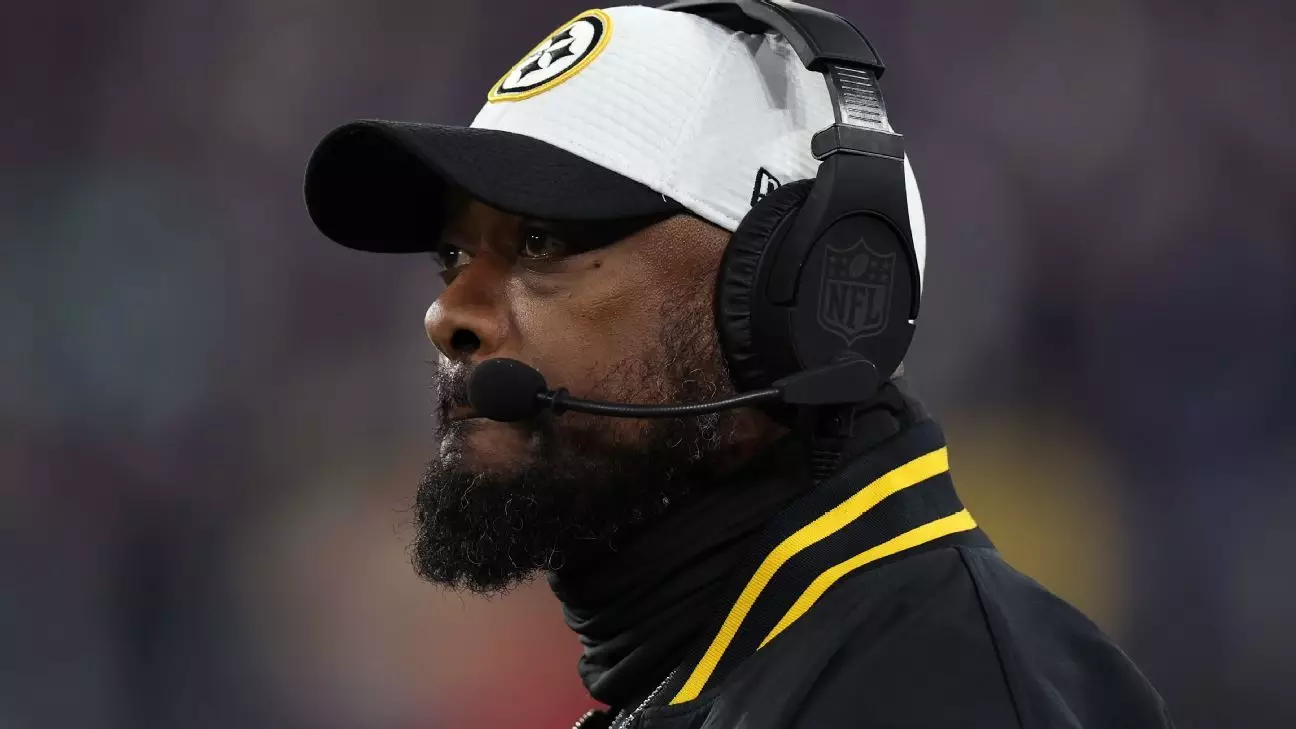The dynamics of the NFL coaching landscape are often characterized by ambition, ambition, and controversy. Teams incessantly seek competitive advantages, and the coaching carousel, featuring high-stakes negotiations and strategic inquiries, reflects this reality. A recent inquiry from the Chicago Bears into the availability of Pittsburgh Steelers head coach Mike Tomlin has drawn attention, underscoring both the Bears’ aspirations and the Steelers’ firm commitment to their coaching leader. This situation serves as an intriguing case study of how franchises navigate the complexities of leadership and performance.
The Chicago Bears, a franchise known for its storied history, find themselves at a pivotal juncture. Repeatedly grappling with underwhelming seasons, the Bears are keenly aware of the need for effective leadership to revitalize their team. Their decision to reach out to the Steelers regarding Mike Tomlin speaks volumes about their recognition of his coaching prowess and leadership qualities.
It is essential to consider the motivations behind such inquiries. The Bears, despite their own struggles, possess an understanding that success in the NFL often comes down to quality coaching. By attempting to engage with Tomlin, a proven leader who has achieved remarkable success in Pittsburgh, they have demonstrated a willingness to explore every possible avenue.
However, despite their proactive approach, their endeavor has been met with resistance. Sources indicate that the Steelers clearly communicated their unwillingness to part with Tomlin, reaffirming the solidity of Pittsburgh’s coaching framework. The conversation between the Bears and Steelers effectively illustrates the growing chasm between teams seeking new eras of success and those determined to uphold their legacy.
Pittsburgh’s decision to retain Tomlin, even amid back-to-back playoff disappointments, signifies a loyalty that is somewhat rare in professional sports. The franchise’s history is steeped in stability, with only three head coaches since 1969, and Tomlin is a crucial part of that narrative. Having never experienced a losing season during his 18-year tenure, Tomlin has solidified his position as a cornerstone of the Steelers organization.
Moreover, Tomlin’s contract extension last season, which ranks him among the highest-paid coaches in the league, reflects the ownership’s belief in his ability to navigate challenges. The Pittsburgh Steelers are not simply focused on immediate success; they embody a broader vision, valuing continuity and steady leadership over knee-jerk reactions to setbacks.
Tomlin’s own response to speculation about his availability reveals a depth of character. His candid acknowledgment of the scrutiny he faces as head coach, coupled with a strong sense of ownership over the team’s performance, demonstrates his commitment to both the franchise and its passionate fan base. He embraces the pressure that comes with the territory, indicating that he is prepared to rise to challenges rather than shy away from them.
While the potential acquisition of Tomlin by the Bears fizzled, it serves as a catalyst for understanding the broader coaching search that Chicago is undertaking. The franchise is methodically exploring a vast array of candidates, aiming to find the right person to steer their team toward a brighter future.
The list of interviewees, which includes notable figures such as former Seahawks head coach Pete Carroll and current offensive coordinators from various successful teams, illustrates a comprehensive strategy to revamp their coaching staff. This breadth of exploration indicates that the Bears are not merely interested in big names but are thoroughly evaluating the various philosophies and strategies that each candidate brings to the table.
This wide net highlights an understanding that successful transitions in coaching require careful consideration and due diligence. The Bears’ leadership recognizes that effective coaching is not just about hiring someone with a charismatic resume; it’s about aligning a coach’s vision and approach with the franchise’s long-term goals.
As teams like the Bears seek to reinvigorate their brand and performances in the NFL, the inquiry into Mike Tomlin serves as a focal point of ambition clashing with tradition. The Steelers stand as a testament to the value of loyalty and consistent leadership, while the Bears exemplify the urgent need for evolution in a highly competitive environment.
In an era where coaching decisions can make or break franchises, the intricacies of these developments reveal much about individual teams’ identities, challenges, and aspirations. Ultimately, both franchises must navigate the complexities of their respective paths and continually adapt to the evolving landscape of the NFL.


Leave a Reply